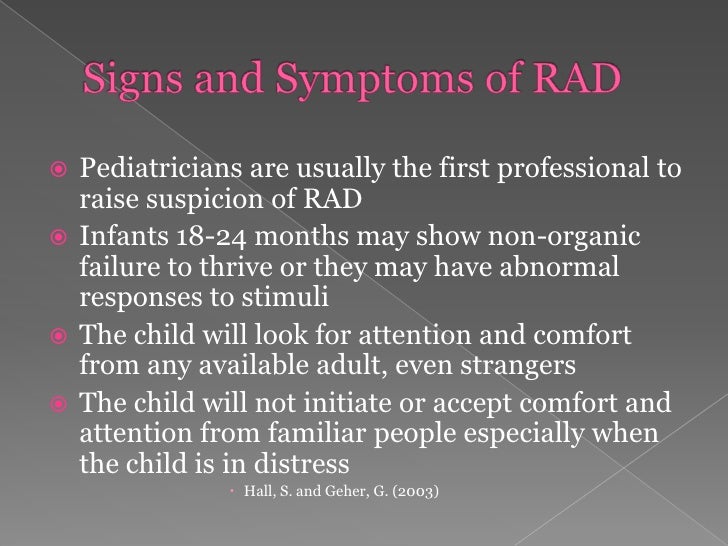
Individuals with reactive attachment disorder experience difficulty forming stable relationships and are more likely to engage in negative behaviors such as substance abuse. It causes individuals to believe they must provide for themselves, even if they don’t have the means or knowledge to do so. Reactive attachment disorder affects the development of healthy bonds and attachment to others and impacts overall mental health. Get Matched With A Licensed Counselor Online. The criteria for autism spectrum disorder is not metĪsk An Expert About Attachment Issues.The disturbance is evident before the age of 5 years.The child has a developmental age of at least 9 months.A pattern of extremes of insufficient care.A consistent pattern of inhibited, emotionally withdrawn behavior toward adult caregivers.The presence of persistent social and emotional disturbance.
#INHIBITED RAD DISORDER SYMPTOMS MANUAL#
Criteria for Reactive Attachment DisorderĪccording to the Diagnostic and Statistical Manual of Mental Disorders (DSM-V), the criteria for diagnosing someone with reactive attachment disorder include: Treatment should be implemented as soon as symptoms are noticed and a diagnosis is confirmed by a healthcare professional. Fortunately, reactive attachment disorder can be treated in both children and adults. This condition makes it difficult to maintain significant relationships as an adult.Īlthough RAD is observed more often in children under five years of age, it can persist into adolescence and even adulthood if left untreated. However, if a child does not gain a positive sense of bonding with a caregiver, or physical needs such as food and shelter are not met, or the individual suffers trauma, the person may be at risk of developing RAD. Attachment theory suggests that forming a close and loving bond early in life is essential for good mental health outcomes later in life. Reactive attachment disorder in adults and RAD symptoms are believed to develop during infancy and early childhood if a child is unable to form a secure attachment with their primary caregiver, often because of unmet physical or emotional needs or childhood trauma. Reactive attachment disorder in adults often occurs if a person had RAD as a child and did not get effective treatment.

Reactive attachment disorder (RAD) is among the mental disorders that can be diagnosed in infants, children, and adults.


 0 kommentar(er)
0 kommentar(er)
